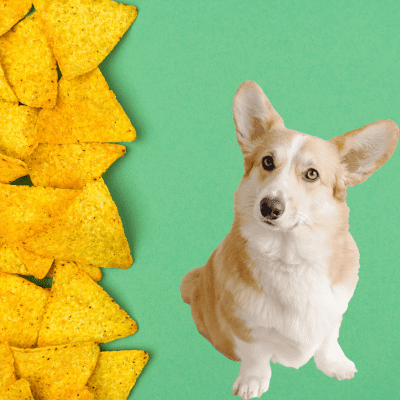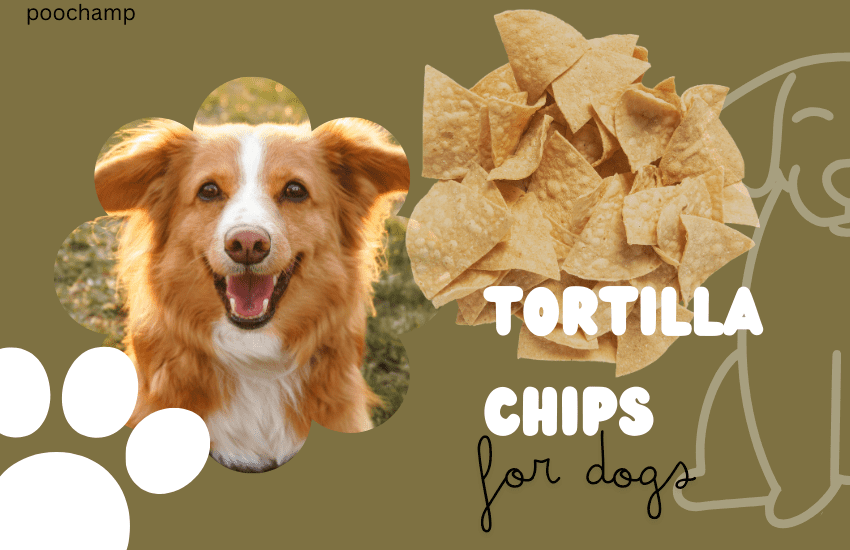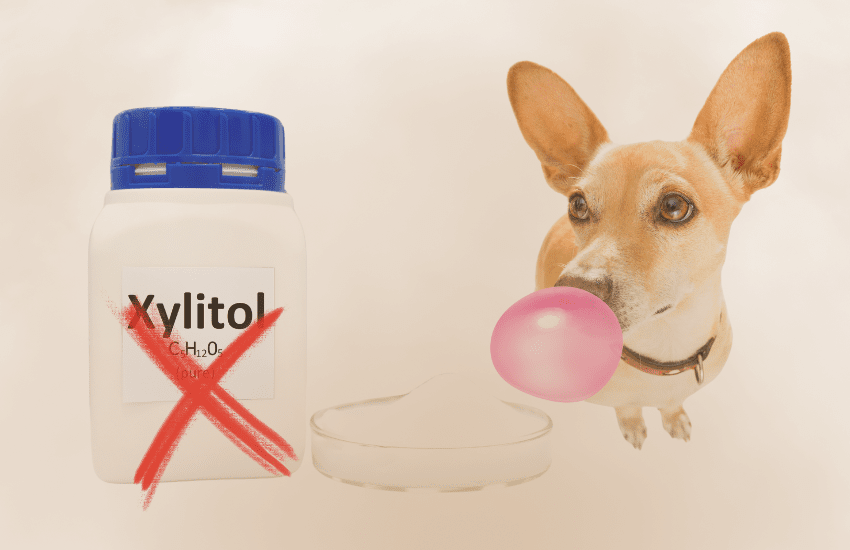Can dogs eat tortilla?-Dogs can eat tortillas in moderation, but they offer minimal nutritional benefit. Tortillas are not toxic to dogs, yet they are high in calories and can contribute to weight gain.
Tortillas, a staple in many diets, often find their way into our furry friends’ mouths. While not inherently harmful, these flatbreads don’t provide the essential nutrients that dogs need for a healthy diet. Owners should be mindful of the ingredients in tortillas, as some may contain harmful additives or seasonings like garlic and onion powder, which are toxic to dogs.
Plain tortillas made of flour or corn are safer options, but they should still be given sparingly due to their high carbohydrate content. Opting for whole-grain versions may be slightly more beneficial due to their increased fiber content. Always consider a dog’s overall diet and health needs before sharing human food, and consult with a veterinarian if you have questions about appropriate treats for your pet.
Nutritional Value Of Tortillas
Dog owners often wonder what human foods are safe for their furry friends. Tortillas, a staple in many diets, might come to mind. But what’s the nutritional value of tortillas when it comes to feeding them to dogs? It’s important to unpack the contents of this common food to understand how it affects canine health.
Calories And Macro-nutrients of tortilla for dogs
Feeding dogs tortillas should be done with care. Let’s break down the calories and macro-nutrients in a typical tortilla. An average corn tortilla contains about 50-70 calories, while a flour tortilla can contain up to 100 calories or more, depending on size. The macro-nutrients in tortillas are:
- Carbohydrates: Corn tortillas are mainly composed of carbs, providing energy.
- Protein: They contain a small amount of protein, essential for muscle growth.
- Fats: Tortillas have minimal fat, which is good since dogs need a balanced diet.
While tortillas aren’t harmful to dogs, they don’t offer much nutritional value for them either. Here’s a simple table showing the macronutrient breakdown for a medium-sized (45g) flour tortilla:
| Nutrient | Amount |
|---|---|
| Calories | 120-150 |
| Carbohydrates | 20g |
| Protein | 3g |
| Fat | 2g-5g |
Too many carbs can lead to weight gain in dogs, so tortillas should be a rare treat, not a regular part of their diet.
Micro-nutrients of tortilla chips for dogs
Beyond the basics, tortillas also contain micro-nutrients that can impact a dog’s health. While humans can benefit from the fiber, vitamins, and minerals in tortillas, dogs have different nutritional needs. Some micro-nutrients found in tortillas include:
- Calcium: Essential for strong bones, but dogs require a specific amount.
- Iron: Important for blood health, yet dogs usually get enough from their regular diet.
- Magnesium: Supports muscle and nerve function, but too much can be harmful to dogs.
Here’s a table outlining a few key micro-nutrients in a medium-sized flour tortilla:
| Micro-nutrient | Amount |
|---|---|
| Calcium | 39mg |
| Iron | 1.2mg |
| Magnesium | 24mg |
Dogs can eat tortillas in small amounts, but it’s key to remember they are not a necessary part of their diet. Always consider your dog’s overall diet before introducing human food.

Risks Of Feeding Tortillas To Dogs
Many dog owners wonder if they can share a piece of their tortilla with their furry friend. While a small bite of tortilla occasionally might not harm your dog, it’s important to understand the risks involved. Dogs have different digestive systems than humans, and some foods that are safe for us can be harmful to them. Let’s dive into why tortillas might not be the best snack for your pup.
Digestive Issues
Feeding your dog tortillas can lead to several digestive problems. Here’s why:
- Tortillas are high in carbohydrates, which can be hard for dogs to digest, especially in large quantities.
- Fiber content in tortillas is low, which doesn’t help with digestion and can cause constipation.
- Fat and oils often found in tortillas can lead to pancreatitis, a serious and painful condition for dogs.
Some symptoms of digestive distress in dogs include:
| Symptoms | Possible Causes |
|---|---|
| Bloating | Excessive carbohydrate intake |
| Gas | Indigestion from fats and oils |
| Diarrhea | Reaction to preservatives or gluten |
| Vomiting | Over-consumption or pancreatitis |
Small pieces of plain tortilla might be okay occasionally, but it’s better to avoid making it a regular treat.
Allergic Reactions
Just like humans, dogs can have allergic reactions to certain foods. Tortillas might contain ingredients that trigger such reactions. Here’s what to consider:
- Wheat and gluten found in many tortillas can cause allergies in some dogs. Symptoms can include skin rashes and digestive upset.
- Corn, another common ingredient, can also be an allergen for some dogs, potentially leading to itching and discomfort.
If your dog eats a tortilla and shows signs of an allergic reaction, such as:
| Signs of Allergy | Actions to Take |
|---|---|
| Itchy skin | Stop feeding tortillas and consult your vet |
| Swelling | Seek immediate veterinary care |
| Difficulty breathing | This is an emergency; go to the vet right away |
| Hives | Remove the allergen and get vet advice |
Monitor your dog closely after giving them new foods and always keep an eye out for any adverse reactions.
Safe Ways To Feed Tortillas To Dogs
Tortillas can be a tasty snack for humans, but dog owners often wonder can dogs eat tortilla chips?. The good news is dogs can enjoy tortillas, too. However, it’s crucial to know the safe ways to feed tortillas to dogs. This guide will help ensure that sharing this human food doesn’t harm your pet. Always remember, what works for humans might not always be suitable for dogs.
Moderation
When feeding dogs tortillas, moderation is key. Dogs’ digestive systems are not designed for processed human foods, so tortillas should be an occasional treat, not a regular part of their diet. Here are some points to consider:
- Portion Size: Offer small pieces to avoid choking and overfeeding.
- Frequency: Treat your dog with tortillas no more than once a week.
- Calories: Remember, tortillas are high in calories and can lead to weight gain.
Here’s a simple table to help you understand the moderation principle:
| Dog Size | Portion Size | Frequency |
|---|---|---|
| Small | 1-2 small pieces | Once a week |
| Medium | 2-3 small pieces | Once a week |
| Large | 3-4 small pieces | Once a week |
By sticking to these guidelines, you can enjoy sharing tortillas with your dog without risking their health.
Preparation Tips
Preparation is important when offering tortillas to dogs. Here’s how to do it right:
- Choose Plain Tortillas: Opt for tortillas without added seasonings or spices, which can be harmful to dogs.
- No Extras: Avoid fillings like cheese, onions, or sauces that can upset a dog’s stomach.
- Watch for Allergies: Monitor your dog for any signs of allergies or digestive issues after eating tortillas.
Additionally, consider these preparation tips to ensure safety:
- Warm the tortilla slightly to make it softer and easier to chew.
- Cut the tortilla into bite-sized pieces to prevent choking hazards.
- Always provide fresh water for your dog to drink after eating dry foods.
Following these tips will help you feed tortillas to your dog safely, making it a fun and harmless experience for your beloved pet.
Alternatives To Tortillas For Dogs
Dogs often love to nibble on whatever their humans are eating, and tortillas might be no exception. But are they a good choice for our furry friends? Not really. While a small piece of tortilla now and then isn’t likely to harm your dog, there are far better alternatives that can provide nutritional benefits without the empty calories. Let’s explore some healthy snack options and homemade treats that are much more suitable for dogs.
Healthy Snack Options
Replacing tortillas with healthier snacks is a wise choice for your dog’s diet. Dogs need a balance of protein, fiber, and other nutrients to stay healthy. Here are some dog-friendly alternatives:
- Carrots: They are low in calories and high in fiber and vitamins.
- Green Beans: These are safe for dogs and can be a crunchy, satisfying treat.
- Apple Slices: A sweet treat, but remember to remove the seeds and core.
These snacks not only provide variety but also come with health benefits:
| Snack | Benefits |
|---|---|
| Carrots | Good for teeth, rich in beta-carotene |
| Green Beans | Low calorie, filling, contains iron |
| Apple Slices | Source of vitamin C and fiber |
Ensure the snacks are in small, manageable pieces to prevent choking. Always introduce new foods slowly and watch for any signs of digestive upset.
Homemade Treats
Creating homemade treats is a fun way to ensure your dog’s snacks are fresh and healthy. Start with simple recipes that use dog-safe ingredients. Here are a few ideas:
- Pumpkin Biscuits: Combine pumpkin puree with oats for a fiber-rich treat.
- Chicken Jerky: Thin slices of chicken breast, oven-baked until dry, make a protein-packed snack.
- Sweet Potato Chews: Slice sweet potatoes and dehydrate them for a chewy, vitamin-rich option.
These treats are not just tasty but also beneficial:
| Treat | Key Nutrients |
|---|---|
| Pumpkin Biscuits | Fiber, vitamins A and C |
| Chicken Jerky | Lean protein, essential amino acids |
| Sweet Potato Chews | Beta-carotene, vitamins A and C |
Remember to keep homemade treats free from salt, sugar, and spices. Also, treats should not make up more than 10% of your dog’s daily calorie intake. Balance is key to a healthy diet for your furry friend.
Frequently Asked Questions
Can Dogs Eat Flour Or Corn Tortillas?
Dogs can eat flour and corn tortillas in moderation. However, these should not contain any harmful additives or seasonings. Always offer small amounts as an occasional treat.
Can Dogs Have Masa?
Dogs can eat masa in small quantities, as it’s generally safe but not nutritionally beneficial. Always ensure it’s plain and monitor for any allergic reactions. Consult your vet for personalized advice.
Can Dogs Eat Flour?
Dogs can eat flour in small amounts, but some types, like almond flour, can be harmful. Choose wheat or coconut flour as safer options for your pet.
Can Dogs Eat Mexican Tortilla Chips?
Dogs can eat Mexican tortilla chips occasionally in small amounts. However, these chips are high in salt and fat, which isn’t ideal for dogs. Frequent consumption can lead to health issues. Always opt for plain, unsalted chips and consult your vet for advice on feeding human foods to pets.
Conclusion
As we wrap up our discussion on dogs and tortillas, remember moderation is key. While tortillas aren’t toxic to dogs, they offer little nutritional value. Opt for healthier snack options to keep your furry friend in top shape. Always consult your vet before introducing new foods to your dog’s diet.






